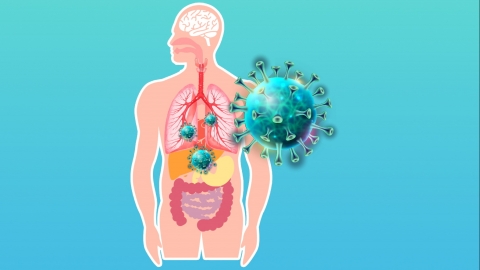How does Mycoplasma and Chlamydia infection occur?
There are various causes of mycoplasma and chlamydia infections, mainly including transmission through sexual contact, indirect contact, mother-to-child transmission, respiratory transmission, and decreased immunity. Patients are advised to seek timely medical treatment at a hospital as directed by a physician. Detailed explanations are as follows:

1. Sexual Transmission
Mycoplasma and chlamydia can spread between sexual partners through direct genital contact. This is the primary route of infection for mycoplasma and chlamydia in the urinary and reproductive systems. Therefore, it is important to avoid unsafe sexual practices in daily life to reduce the risk of infection.
2. Indirect Contact Transmission
Infection can also occur by touching objects contaminated with mycoplasma or chlamydia, such as towels, bathrobes, toilet seats, bathtubs, and toothbrushes. The pathogens on these objects can survive for a certain period and enter the body when they come into contact with mucous membranes or broken skin. Thus, individuals should use personal hygiene products separately to reduce the risk of infection.
3. Mother-to-Child Transmission
If a mother is infected with mycoplasma or chlamydia, the fetus may easily come into contact with the pathogens and become infected while passing through the birth canal during delivery. Additionally, the pathogen may also be transmitted to the fetus or newborn through the placenta or intestines. Therefore, pregnant women should take proper precautions to reduce the risk of infection in newborns.
4. Respiratory Transmission
Certain types of mycoplasma and chlamydia, such as Mycoplasma pneumoniae, can spread through respiratory droplets. When an infected person sneezes or coughs without covering their mouth and nose, the pathogens can enter the air via droplets, and others may become infected by inhaling the contaminated air. This type of transmission typically presents symptoms such as coughing, sputum production, headache, and sore throat.
5. Decreased Immunity
Long-term fatigue, malnutrition, suffering from other chronic diseases, or genetic susceptibility may lead to a weakened immune system. When the body's immune function declines, its resistance to mycoplasma and chlamydia decreases, which may trigger infection. Therefore, maintaining a healthy lifestyle—including a balanced diet, moderate exercise, and adequate sleep—can help enhance the body's immunity and prevent infections.
To prevent infections, adolescents and individuals with weakened immune systems should pay attention to personal hygiene and protective measures.







